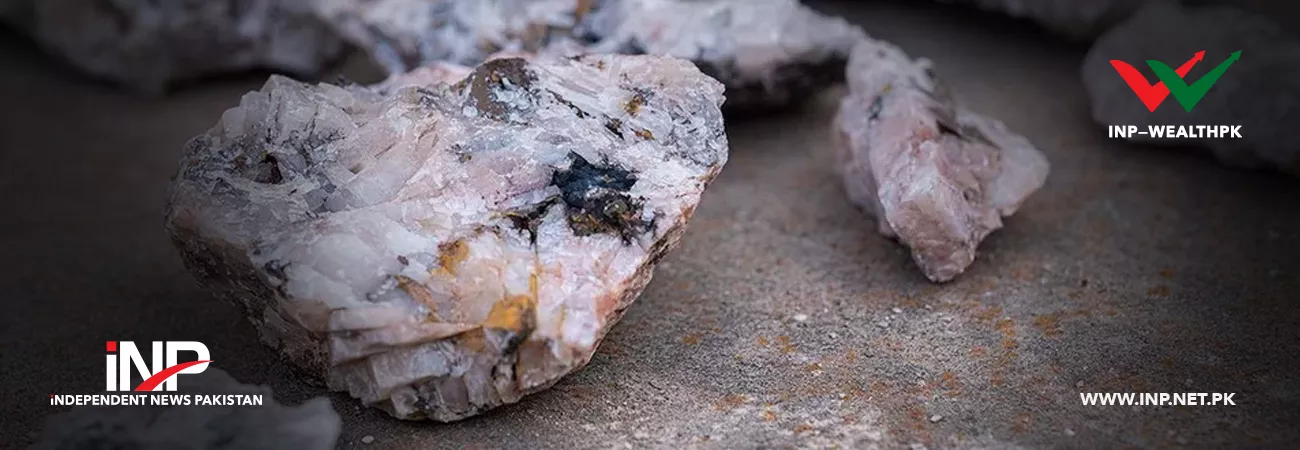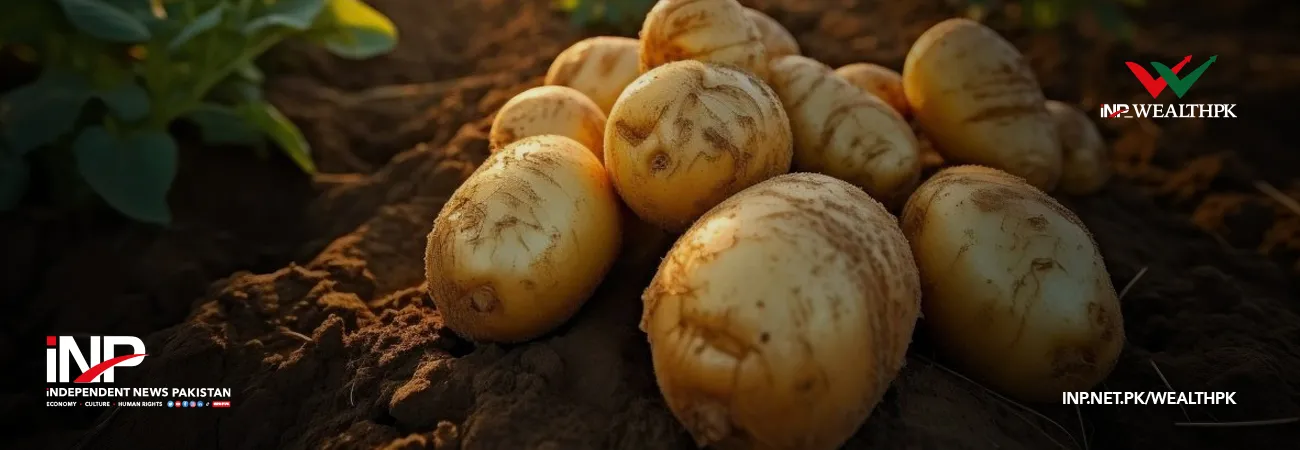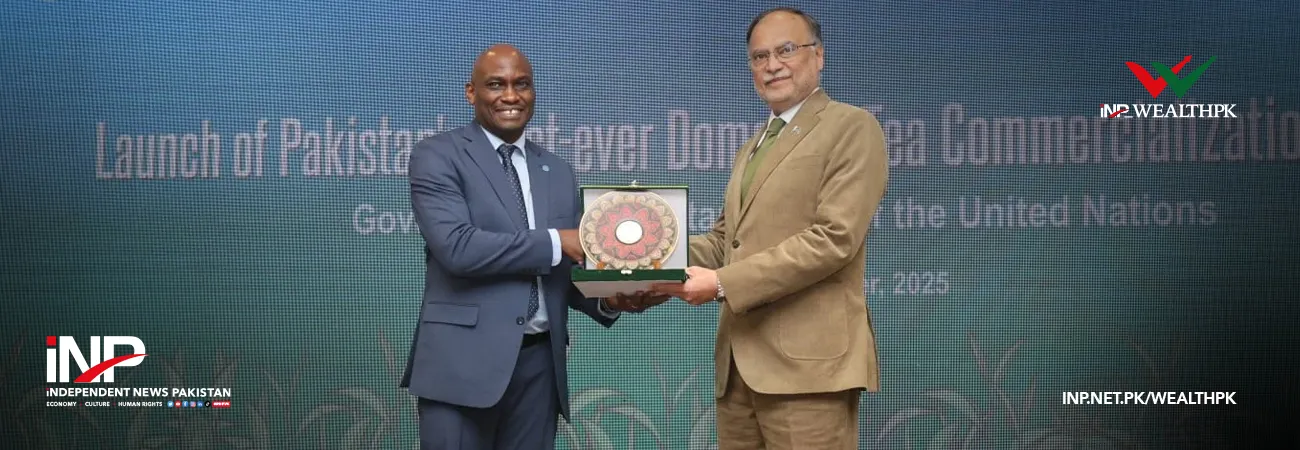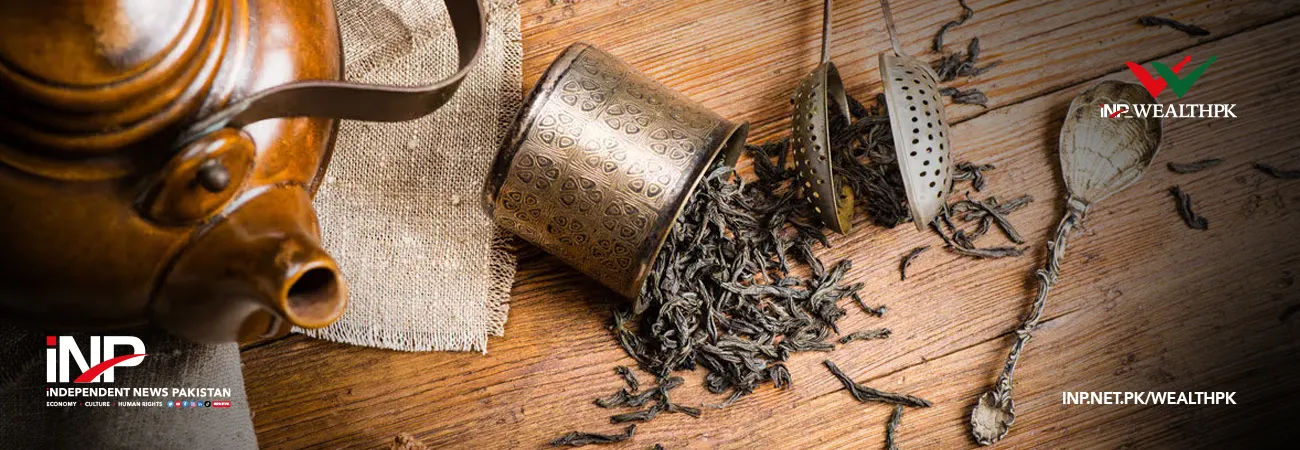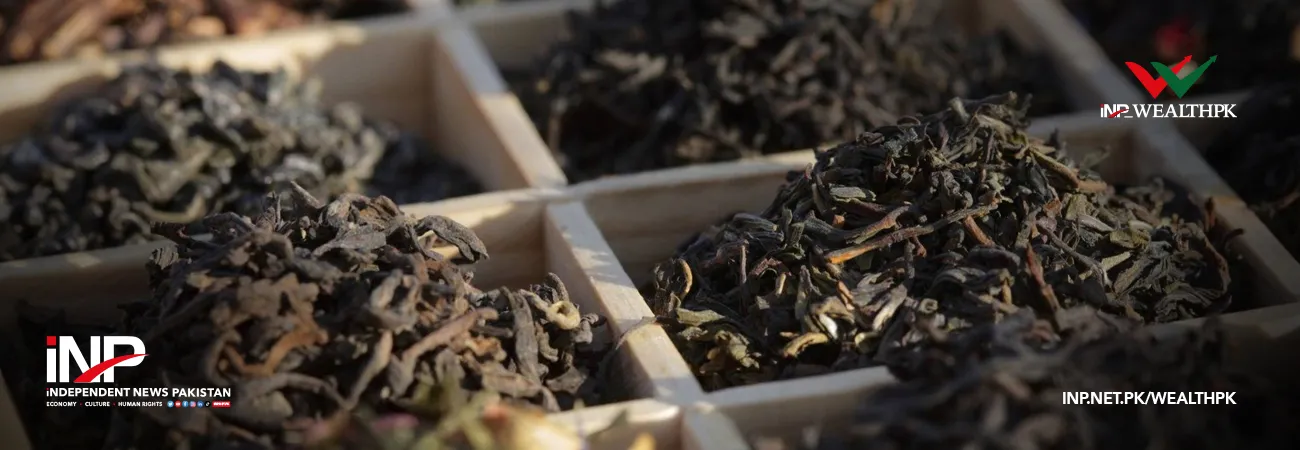INP-WealthPk
By Faiza Tehseen
Pakistan has abundant deposits of barite – a widespread naturally occurring high-gravity mineral used in the production of multiple industrial products. However, its export in raw form and import of aggregates is depriving the country of sizable foreign exchange, reports WealthPK.
Barite and its aggregates are widely used in multiple industries for further production, i.e., plastics, rubber, clutch pads, X-ray shielding, paper coatings, linoleum, paints, as a weighting mud in oil/gas drilling wells, chlorine alkali industries, rubber mud flaps, mold release compounds, radiation, caustic chlorine plants, heat treat salts, textiles, etc.
Taking 2020 as the base year at the value of US$1.97 billion per ton, the market value of baryte is projected to reach US$2.81 billion by the year 2030 at the Compound Annual Growth Rate (CAGR) of 4%. Industrially multiple aggregates from barium are also important for further manufacturing i.e., Barium Chloride, Barium Carbonate, Barium Sulphate, etc. The growth rate of Barium Chloride is recorded at a CAGR of 4% to 5% by 2032. The global market of Barium Carbonate is expected to grow at the rate of 4.8% worth US$1,118.2 by 2032. Barium Sulphate is estimated to grow worth US$2242.7mn by 2032.
In a discussion with WealthPK about the true potential of barite in Pakistan and its local processing, Principal Geologist at the Global Mining Company, Islamabad and former general manager Geology at the Pakistan Mineral Development Corporation Muhammad Yaqub Shah said Khuzdar and Lasbella districts of Balochistan possessed largest deposits of Barite.
“In Khuzdar, Gunga Barite surface deposit has proven 11 million tons of mineralization interbedded between limestone and shale with the association of zinc at 6% and lead at 1%. These are 1,500 to 2,000 meters in strike length exposed on the surface with 88 to 93% Barium Sulphate contents.
Duddar Lead-Zinc deposit has reserves of 4.5 million tons of barite with the association of 1.7% Lead and 11.20% Zinc. A reputed Chinese company – MCC – is working with the PMDC, and Bolan Mining Company (BMC) with Pakistan Petroleum Limited (PPL).”
Moreover, he said Surmai keeping three large surface deposits of barium had 30.51 million tonnes with 22.7 million tons of sulphite and 7.81 million tons of sulphate oxide. Here the associated minerals are Zinc 3% and Lead 0.66% with the unique addition of 7.4 gms PPM of silver.
Still, these deposits are under investigation. Lenses of 90% barite content are found at different places in Kudni (Balochistan). It is a 25-meter small deposit consisting of 1.2 meters in thickness with no properly defined depth yet. With 76% Barium Sulphate content, about 40-meter long and 10-to-20-meter wide Kachhi deposits are also in the province.
Barite deposits are also found in abundance in Khyber Pakhtunkhwa. A large number of deposits also occur on Haripur-Bir Road in form of lenses with seven types of vein formations. Mostly, surface mining is done to a depth of over 200 meters but the real depth has not been monitored yet.
Having a viability of 89 to 90%, non-quantified Hevellian deposit is under open pit mining. Here Barium Sulphate is found in highly demanded beige/snow-white colors. Vein-type deposit in Faqir Muhammad village is located 27 kilometers away from Haripur keeping three grades of Barium Sulphate – 57.52%, 82.41%, and 92.6%. Kohala Barite deposits have 94% of Barium Sulphate content.
Continuing the discussion, Yaqub said barite is found in colourless, white and powder blue forms. There is a huge potential for barite-lead-zinc production in Balochistan through mechanized mining. Dozens of vein-type deposits in Haripur and Hevellian are mined at a small scale through the open pit mining technique though the production can be increased. If detailed prediction studies are carried out on small-scale mapping along with structural data analysis using modern underground mining machinery, good annual production can be obtained from here.
Pakistan must focus on exploiting its mineral wealth to save foreign exchange and increase its own industrial net. This will help improve the socioeconomic welfare of its people. China and other countries where the industrial level is high can be proven good markets for the aggregates of Pakistani Barite.
Credit : Independent News Pakistan-WealthPk



